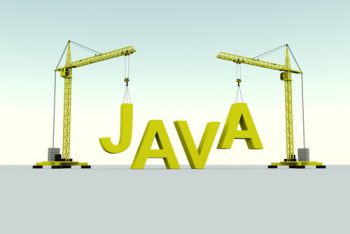Source – jaxenter.com
Data Science, Machine Learning, and Artificial Intelligence are attracting big money today. Many organizations, big and small, are investing millions in research — and people — to build powerful data-driven applications.
Python and R have long been the two languages said to have a hold on the data science world, but that’s not to say they’re the only languages worth using for data science. There are, you’ll be happy to know, plenty of reasons to use Java for data science projects. Here are just 10 reasons why Java is a great language for doing data science:
- Old is gold: Java is one of the oldest languages used for enterprise development and it’s quite likely that the organization you’re working in also has a major part of their infrastructure based on Java. For this, you might want to prototype in maybe R or Python and then rewrite your models to Java.
- First Class Citizen: Most of the popular Big Data frameworks/tools on the likes of Spark, Flink, Hive, Spark and Hadoop are written in Java. It’s easier to find a Java developer who’s comfortable working with Hadoop and Hive, rather than one who isn’t familiar with Java and the stack.
- Great Toolset: Java has a great number of libraries and tools for Machine Learning and Data Science. Some of them being, Weka, Java-ML, MLlib and Deeplearning4j, to solve most of your ML or data science problems.
- Lambdas and REPL: With Java 8 came Lambdas, which rectified most of Java’s verbosity, thus making it less painful to develop large enterprise/data science projects. On the other hand, Java 9 brings in the much-missed REPL, that facilitates iterative development.
- Java Virtual Machine: The JVM is one of the best platforms, enabling you to write code that is identical on multiple platforms. The JVM allows developers to create custom tools quickly. Moreover, Java has a load of IDEs that improve developers’ productivity.
- Java is Strongly Typed: Not to be confused with static typing, strong typing helps when working with large data applications, and type safety is a feature worth having. Java ensures programmers are explicit about the types of data and variables they deal with. It makes it much easier to maintain the code base and you can safely avoid writing trivial unit tests for your applications.
- JVM has Scala: Although this is somewhat of a next step, it’s worth learning Scala to do some heavy data science, and it gets easier if you already know how to code in Java. Scala offers amazing support for data science, and several powerful frameworks like Spark are built on top of Scala.
- The Job Scene:
 If SQL is knocked out of the way, Java is a clear winner in the job space. It’s more likely you will get picked up by an organization if you have Java as one of your skills.
If SQL is knocked out of the way, Java is a clear winner in the job space. It’s more likely you will get picked up by an organization if you have Java as one of your skills. - Scalability: Java is excellent when it comes to scaling your applications. This makes it a great choice when you’re thinking of building larger and more complex ML/AI applications. If you’re starting out to build up your application from the ground level, it’s good to choose Java as your programming language.
- Java is Fast: Unlike some of the other widely used languages for Data Science, Java is fast. Speed is critical for building large-scale applications and Java is perfectly suited for this. MNCs like Twitter, Facebook and LinkedIn rely on Java for data engineering efforts.
